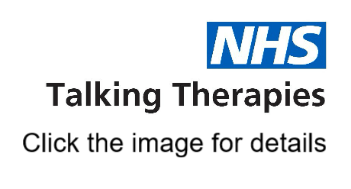 Talking to your doctor can be extremely daunting for many with social anxiety disorder (SAD), even if you know you need help. You might worry about being judged, not knowing what to say, or going blank when it’s time to speak. This article will walk you through ways to contact your GP as well as information about how to self-refer to the NHS Talking therapy service.
Talking to your doctor can be extremely daunting for many with social anxiety disorder (SAD), even if you know you need help. You might worry about being judged, not knowing what to say, or going blank when it’s time to speak. This article will walk you through ways to contact your GP as well as information about how to self-refer to the NHS Talking therapy service.
Why Seeing a GP Can Help
What most people don’t realise is that GPs talk about mental health every day. Approximately a third of all GP appointments involve a discussion about mental well-being.
Your GP should be aware that social anxiety disorder is a common mental health problem and that the NICE guidance recommends a psychological therapy called cognitive behavioural therapy (CBT for short) as well as other options – see NHS treatment options.
Ways to get a GP appointment if phone calls feel hard
An alternative option to a phone call maybe an online form at your GP Practice website, or to contact your practice by email. Use the link find your GP surgery to get their website details. Somewhere on the website should be a link to “contact us” or “fill an online form”.
You could use this message to get help via email or the online forms:
“I have been struggling with social anxiety, which makes attending appointments and speaking to others difficult. I’d like an appointment with the GP (or a phone call) to discuss my treatment options. Thank you.”
The NICE guidance makes it clear that both the GP and other NHS professionals should make provisions if you find medical appointments difficult – see how contact with NHS services can be made easier for those with social anxiety
What to expect in the appointment
Your GP may ask questions about sleep, mood, how your social anxiety affects everyday life, work and relationships. These questions help them understand what support will be most helpful to you.
Suggestions to Help You Get the Most from Your GP Appointment
Some of these suggestions may help:
- It might help to have a simple sentence ready to start the conversation. Just something as simple as “I think I have social anxiety” is enough for your GP to guide the consultation to ensure you get the support you require.
- Write out any questions ahead of time. This way you will not forget them. For example: “What are the treatment options for social anxiety?” or “What should I do if my social anxiety gets worse?” These questions will keep the appointment focused and ensure you leave with the answers you need.
- If you’ve talked to your family or friends about how you feel, practise what you might say to your GP with them. If you have never told anyone about your social anxiety see our pages on talking to friends or family.
- If you prefer to practice without telling others, some people find it helps to speak the questions out loud beforehand e.g. to a mirror or empty room.
- It may help to have a friend or family member with you at the appointment. They can offer emotional backup, listen, and help remember what was said.
- Tell the doctor if you are nervous or struggling to communicate your needs – it may help the doctor to understand your fears and might help you relax e.g. “I may look and sound ok, but inside I am really nervous. I find it hard to talk about these things”.
- Have pen and paper with you in case you need to write down the answers you get.
- Ask the GP to clarify if anything is unclear. You have a right to know your treatment options and to find the help you need.
- If you don’t feel heard or the GP doesn’t offer the help you need, you can ask to see another GP in the same practice.
After your appointment — what to do next
Most GPs will encourage you to self-refer to NHS Talking Therapies. Your GP will usually send you a link by text or give you the details of your local service. You can then fill out a short online form on your local NHS Talking Therapies website, or call their number directly to start the process. It’s simple and doesn’t require another appointment to get started.
While you wait for your first therapy session, it can be helpful to keep a small diary or notebook. Write down your main concerns, any situations that trigger your anxiety, and how you reacted or coped. These notes will make it much easier to explain things to your therapist when you start your sessions.
Your diary can also help you notice progress or patterns over time, and remind you to check back in with your GP if things start to feel worse.
Talking to your GP on behalf of your child or teenager
It is is important to let your GP know as soon as you become aware your child or teenager may have social anxiety. Please also see our pages on our pages on Children and social anxiety or Teenagers and social anxiety.
Conclusion
Remember, social anxiety is a common condition and sharing how you’re feeling is often the first step towards getting the right support for you.
Clinically reviewed by Dr Tasha Malcolm, MRCGP, Clinical Advisor



